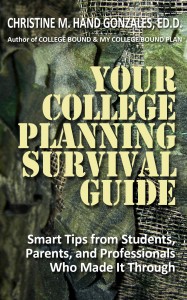Internships are a great way to get experience in a certain field of study. So why intern in high school?
are a great way to get experience in a certain field of study. So why intern in high school?
Work experience in a field of study you want to pursue in college can give you a jump up in the college application process. It is a way to stand out in a crowd. An internship will also allow you to understand more details about your major of interest and help you to understand how organizations operate.
So, how do you find an internship? First identify your passion. Some companies offer formal internship opportunities to high school students in particular. Some pay, some are unpaid, and some you’ll pay for. Research companies in the industry that interests you. Start by asking around at local business associations. Use CareerOneStop’s Employer Locator to help you identify companies in your local area. Next, talk to the Human Resource representative or manager to see if positions are available. Check out local organizations like the newspapers, museums, and hospitals. You may use your contacts on Facebook or Twitter to find openings in your specific area of interest. Try websites like Internships.com, Indeed.com. , or Jobs.change.org. For more on how to apply, click here.









